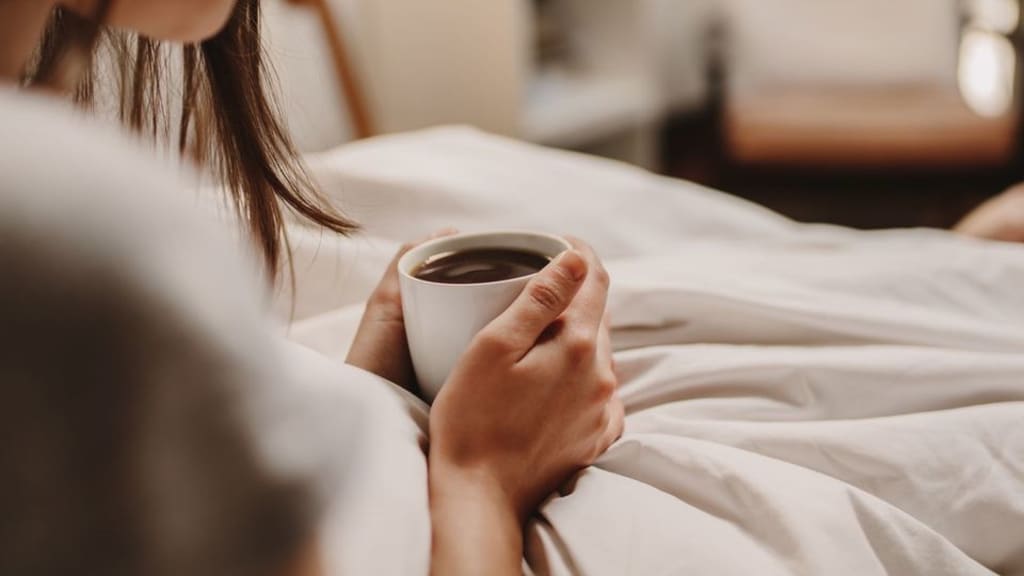Have you ever wondered how that morning cup of coffee might be impacting your nightly slumber? The relationship between caffeine and sleep is a complex one, with research showing both positive and negative effects. Let’s dive into the world of caffeine and explore how it really affects your sleep patterns.

The Impact of Caffeine on Your Circadian Rhythm
Have you ever wondered how that afternoon cup of coffee could be affecting your sleep at night? Caffeine, a stimulant found in coffee, tea, and many other beverages, can have a significant impact on your circadian rhythm, the internal clock that regulates your sleep-wake cycle. Here’s how caffeine can disrupt your natural sleep pattern:
Increases Alertness: Caffeine works by blocking the action of adenosine, a neurotransmitter that promotes sleep and relaxation. By inhibiting adenosine, caffeine can make you feel more awake and alert, which can interfere with your body’s natural inclination to wind down and prepare for sleep.
Delays Melatonin Production: Melatonin is a hormone that signals to your body that it’s time to sleep. When you consume caffeine close to bedtime, it can interfere with the production of melatonin, making it harder for you to fall asleep and stay asleep throughout the night.
Understanding the Link Between Caffeine Consumption and REM Sleep
Caffeine is a commonly consumed stimulant found in coffee, tea, soda, and energy drinks. Many people rely on caffeine to help them stay awake and alert during the day. However, consuming caffeine too close to bedtime can have a negative impact on your sleep, particularly your REM (rapid eye movement) sleep.
During the night, your body goes through several sleep cycles, including REM sleep, which is when most dreaming occurs and plays a crucial role in memory consolidation and cognitive function. Caffeine can disrupt these cycles by delaying the onset of REM sleep or reducing the overall amount of REM sleep you get.
Here are some key points to consider about the link between caffeine consumption and REM sleep:
- Caffeine has a half-life of about 5-6 hours, meaning it can stay in your system for several hours after consumption.
- Consuming caffeine within 6 hours of bedtime can make it harder to fall asleep and reduce the quality of your sleep.
- Limiting caffeine intake to the morning hours and avoiding it in the afternoon and evening can help improve your sleep quality.
Tips for Managing Caffeine Intake to Improve Sleep Quality
Many people enjoy a daily dose of caffeine to help them stay awake and alert throughout the day. However, consuming caffeine too late in the day can have a negative impact on your sleep quality. Caffeine is a stimulant that can stay in your system for several hours, making it harder for you to fall asleep and stay asleep.
Here are some tips for managing your caffeine intake to improve your sleep quality:
- Avoid consuming caffeine in the late afternoon or evening, as it can disrupt your sleep patterns.
- Monitor your caffeine intake throughout the day and limit yourself to a certain amount to avoid overstimulation.
- Consider switching to decaffeinated options in the afternoon and evening to help your body wind down for bedtime.
By being mindful of your caffeine intake and making some simple adjustments to your daily routine, you can improve your sleep quality and overall well-being. Remember, a good night’s sleep is essential for your health and productivity, so it’s worth making the effort to manage your caffeine consumption effectively.
Alternative Ways to Boost Energy Levels Without Caffeine
When it comes to boosting energy levels without relying on caffeine, there are plenty of alternative methods to consider. By making a few simple changes to your daily routine, you can help increase your energy levels naturally and avoid the negative effects that caffeine can have on your sleep.
One effective way to boost energy levels without caffeine is to ensure you’re getting an adequate amount of sleep each night. Quality sleep is crucial for maintaining optimal energy levels throughout the day. Consider establishing a relaxing bedtime routine, such as dimming the lights, practicing meditation or deep breathing exercises, and avoiding electronic devices before bed.
Another alternative way to enhance your energy levels is to stay hydrated throughout the day. Dehydration can lead to feelings of fatigue and low energy, so it’s essential to drink plenty of water regularly. Additionally, incorporating energy-boosting foods into your diet, such as bananas, nuts, and whole grains, can help sustain your energy levels without relying on caffeine.
In conclusion, understanding the impact of caffeine on your sleep is crucial in maintaining a healthy lifestyle. By being aware of how caffeine affects your body and implementing strategies to minimize its interference with your sleep, you can ensure that you are getting the rest you need to function at your best. So, the next time you reach for that extra cup of coffee in the afternoon, think about how it could be disrupting your precious sleep cycle. Sweet dreams!
